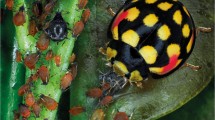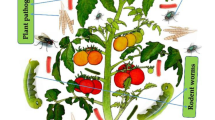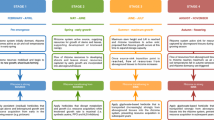Abstract
More than 60 institutions and 100 researchers were involved in Rhizobium research in 1978 in Latin America. Half of these researchers were located in Argentina and Brazil. Research activity and the application of research findings vary widely among countries.
Problems that plague research include 1) inadequate training of research personnel and insufficient attention paid to the Rhizobium/Legume symbiosis at agriculture schools; 2) poorly-established research priorities that do not sufficiently weigh the immediate needs for the farmers such as the identification of limiting environmental factors (e.g. nutritional deficiencies), techniques for smallscale inoculant production, and quality control of available inoculants; 3) isolation of the researchers and a lack of adequate library support; 4) poorly integrated research teams (e.g. in many institutes researchers are either microbiologists with no agricultural background or agronomists lacking microbiological training); and 5) insufficient dissemination of research findings.
Problems with inoculant production and control include 1) a local dependence on national or imported inoculants rather than on locally-selected strains, 2) poor inoculant quality control which results in low inoculation success rates and subsequent discredit to the inoculation practice, and 3) high prices for inoculants.
Extension problems include 1) lacking or deficient legume-promotion programs by government agencies, 2) poor contact between research and extension workers, and 3) administrators, leaders, extension workers and agronomists working in the field that lack adequate knowledge of the Rhizobium/Legume symbiosis.
Immediate measures to foster extension and legume promotion programs and informal and/or official quality control are needed in Argentina, Uruguay, Brazil, Mexico, and probably Colombia. Countries where combined efforts should primarily be directed toward stimulating research and extension include Peru, Venezuela, Costa Rica, and Chile. In Ecuador, Paraguay, Bolivia, Nicaragua, Honduras, Guatemala, the Dominican Republic and Panama, priority should be given to research. Colombia should also be included in this group as national research institutions need to be strengthened. Table 2 lists these priorities more fully.
Resumen
Más de 60 instituciones y 100 investigadores están trabajando de la investigación con Rhizobium en América Latina. La mitad de los investigadores están localizados en Argentina y Brasil. La actividad de investigación y la aplicación de los conocimientos científicos varían ampliamente de acuerdo con los paises.
Los problemas de la investigación incluyen: 1) Entrenamiento inadecuado de los investigadores y poca atención para la simbiosis Rhizobium/Leguminosas en las escuelas de Agronomía; 2) investigaciones de baja prioridad sin consideración para las necesidades más inmediatas para los agricultores tales como identificación de los factores limitantes ambientales (por ejemplo: deficiencias nutricionales), técnicas para la producción de inoculantes en pequeña escala y poco control de calidad de los inoculantes disponibles; 3) aislamiento de los investigadores e insuficiente apoyo de literatura; 4) baja interdisciplinaridad en las investigaciones (por ejemplo: en muchas instituciones los investigadores son microbiológos sin conocimientos de agronomía, o agrónomos sin entrenamiento en microbiología y 5) insuficiente diseminación de los conocimientos científicos.
Los problemas de la producción y control de inoculantes incluyen: 1) las cepas empleadas en los inoculantes (nacionales o importadas) no son seleccionadas localmente; 2) poco control de calidad de los inoculantes y como resultado, inoculantes malos traen descrédito para la práctica de la inoculación, y 3) precios muy altos de los inoculantes.
Los problemas de la extensión incluyen: 1) falta o deficiencia de los programas de promoción de leguminosas por las organizaciones gubernamentales, 2) poco contacto entre los investigadores y los extensionistas y 3) administradores líderes, extensionistas y agrónomos que trabajan en el campo no poseen adecuados conocimientos sobre la simbiosis Rhizobium/Leguminosas.
Algunas medidas inmediatas para promover la extensión y programas de promoción de las leguminosas y/o control oficial de la calidad de los inoculates son necesarias en Argentina, Uruguay, Brasil, México y posiblemente Colombia. Perú, Venezuela, Costa Rica y Chile necesitan esfuerzos combinados dirigidos prioritariamente para promover la investigación y extensión. En Ecuador, Paraguay, Bolivia, Nicaragua, Honduras, Guatemala, República Dominicana y Panamá, la prioridad debe ser dada para la investigación. Colombia debe ser incluída en este grupo por la razón de que las instituciones nacionales deben ser fortalecidas. La tabla 2 relaciona estas prioridades con mas detalles.
Similar content being viewed by others
References
Batthyany C and Freire J R J 1976 Report Prepared to the Food and Agricultural Organization of the United Nations for the FAO/UNEP Programme in Biological Nitrogen Fixation involving Legume Inoculation by Rhizobium in Latin America. Rome: FAO, 63 p. (Not published.)
Habit M A 1977 The Need to Increase Food-Legume Production. Rome: FAO.
Halliday J 1979 Current work on N-Fixation by Tropical Legumes in Latin America Niftal Network Planning Workshop. Hawaii: University of Hawaii/NifTAL.
Microbiological Resources Center (MIRCEN) 1980 Rhizobium MIRCEN Informativo no 2. Porto Alegre, Brazil.
Microbiological Resources Center (MIRCEN) 1980 Progress Report. Porto Alegre, Brazil. (Not published.)
Reynaert F E 1977 Development of a Coordinated International Programme on Biological Nitrogen Fixation by Microorganisms. FAO. (Not published.)
Author information
Authors and Affiliations
Rights and permissions
About this article
Cite this article
Jardim Freire, J.R. Research into the Rhizobium/Leguminosae symbiosis in Latin America. Plant Soil 67, 227–239 (1982). https://doi.org/10.1007/BF02182770
Issue Date:
DOI: https://doi.org/10.1007/BF02182770




